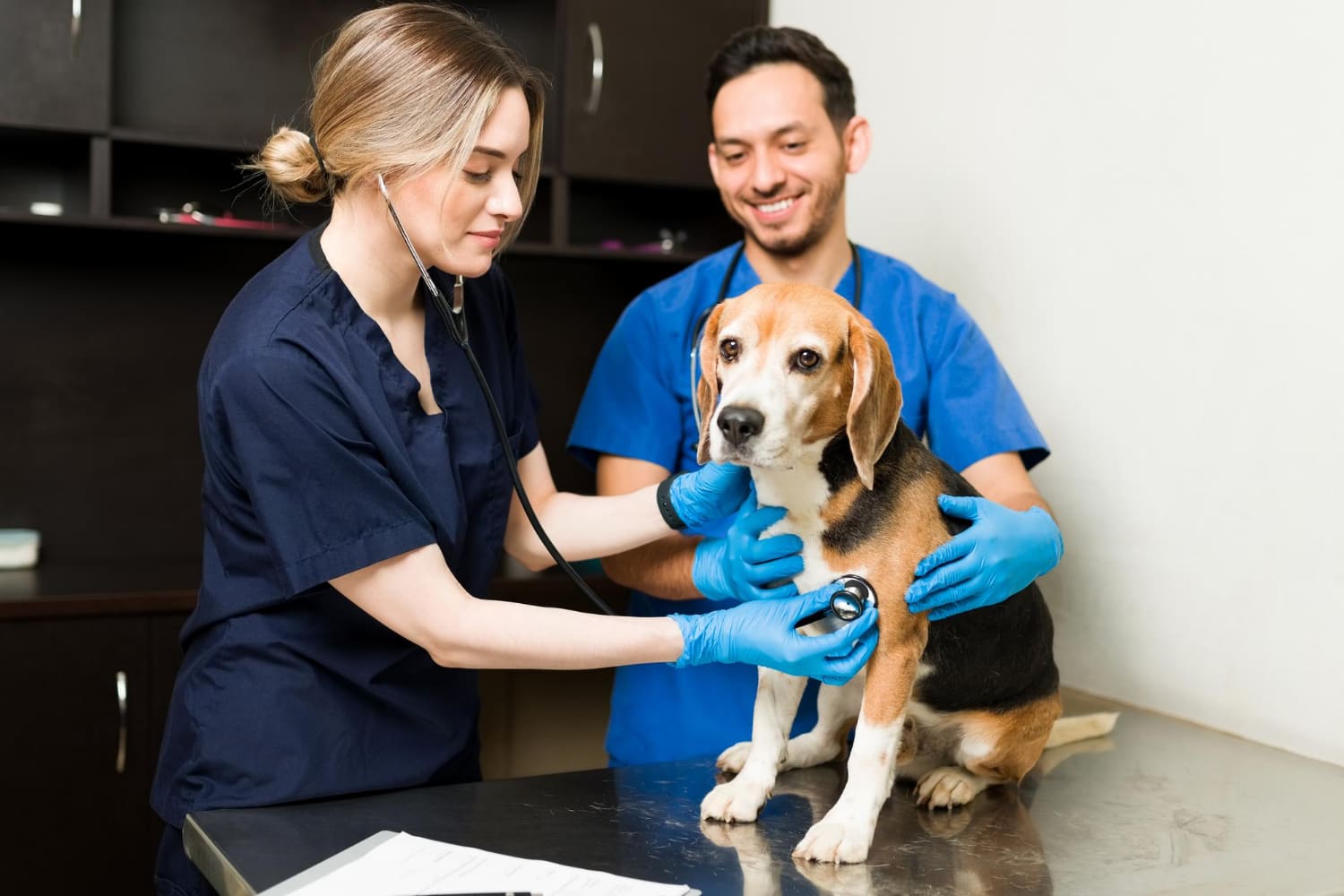Dogs are a lot more resilient than you might think. They can be happy and healthy for years, even if they’re not in the best shape physically. That said, there are some things that can happen to dogs that make them feel bad or not right. Here’s a list of common health problems that your dog might have: skin problems, ear diseases, urinary tract infections (UTIs), vomiting, diarrhea or constipation…and on and on!
Skin Problems
Skin problems in dogs can be caused by a number of different things. Some skin conditions are linked to genetics and age, while others may be caused by environmental factors such as parasites or allergies.
If you have a dog with a mild case of eczema or other allergy-related issue, it’s important to consult your veterinarian so they can diagnose the problem and prescribe treatment accordingly. If your dog is showing signs of more severe inflammation (which usually involves redness), then you’ll want them to see their vet as soon as possible!
Ear Diseases
Ear diseases, such as bacterial or yeast infections, are one of the most common health problems for dogs. The symptoms include scratching at their ears and a discharge from them (usually yellow brown). These can be caused by allergies to pollen or mites in the environment, especially if you live near an open field or where there is a lot of grass. They can also be caused by bacterial infections like otitis externa (swimming pool ear). If you suspect your dog might have an ear infection, talk to your veterinarian about testing him for this condition.
Your vet will likely prescribe antibiotics and anti-fungal medications if needed.
Urinary Tract Infections
Urinary tract infections (UTIs) are common in dogs, especially those with a history of surgery, stress or age. UTIs can be caused by bacteria, crystals or stones.
A UTI is treated with antibiotics and dietary changes to help restore normal urinary pH levels. If your dog has had several episodes of UTI it’s best to contact your veterinarian immediately as there are serious complications that can occur if left untreated.
Vomiting
Vomiting is a common problem in dogs. It’s caused by the dog swallowing something that doesn’t agree with its stomach, and vomiting is one way to make sure your pet has something to eat. Some things that can make dogs vomit include:
- Eating something they shouldn’t have eaten (e.g., chocolate)
- Eating too much at once (e.g., people food)
- Eating something too spicy or greasy
Diarrhea
Diarrhea is the most common symptom of diarrhea. It can be caused by bacteria, viruses and parasites. Dietary changes, stress and exercise can also cause diarrhea in dogs. Medications are another common cause of diarrhea in dogs.
Diarrhea may be a sign that your dog needs medical care if it lasts more than 24 hours or causes severe dehydration (the loss of more than 2 percent body weight).
Parasites
Parasites can be a problem for dogs. Dogs can get parasites from eating infected fleas, ticks and lice; drinking from contaminated water; or even being bitten by another animal that has the parasite.
Parasitic worms are very common in dogs. The most common parasitic worm is roundworm (Toxocara cati), followed by hookworms (Ancylostoma tubaeforme), which both cause anemia in dogs and other animals if left untreated. Tapeworms are also common among dogs, but they’re rarely seen unless there’s some sort of exposure to them (such as through raw meat).
Dental Issues
Dental issues are the most common health problems for dogs. The most common type of dental problem is plaque, which forms on your dog’s teeth when he eats something that has bacteria in it (like kibble). Plaque can also form if you don’t brush your dog’s teeth regularly or use a toothpaste with fluoride. If plaque gets too thick and hard, it can lead to tooth decay and gum disease.
Dogs have different types of teeth: incisors (front upper) and molars/canines (back lower). Incisors are used for eating bones; molars/canines help process food as well as kill prey–they’re sharp! Your puppy will need them throughout his life so make sure you take care of them now by brushing at least twice a day with an appropriate toothpaste or gel paste made specifically for puppies’ gums from age 7 months onward until he’s old enough not to tear them apart anymore.”
Obesity
Obesity is a common health problem in dogs. Obese dogs are at increased risk for many other medical conditions, including diabetes and heart disease.
It may seem like your dog’s weight has nothing to do with you or your family—but it does! If you want to keep your pet healthy, it’s important that he or she gets regular exercise and eats a balanced diet every day.
Conclusion
Dogs are one of the most common pets in the world. They provide companionship and unconditional love, but they also require care and attention too. If you’re looking to buy a new dog or rescue one of your beloved pets from a shelter, then it’s important that you know what kind of health problems they might have so that you can take appropriate steps towards prevention or treatment.

One response to “What are the most common health problems for dogs?”
Usually I don’t learn from articles on blogs, but I wish to say
that this write-up very pressured me to check out and doo it!
Your writing this has surprised me. Thank you, very nice article.